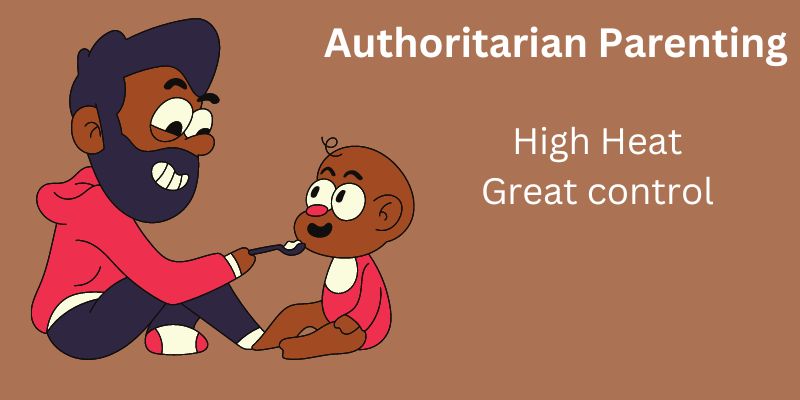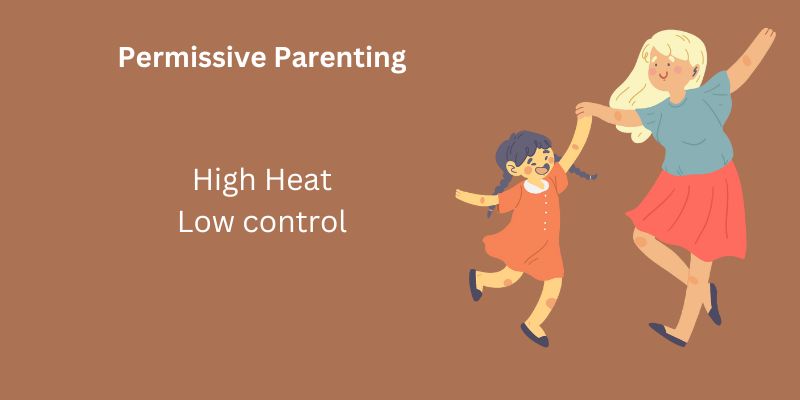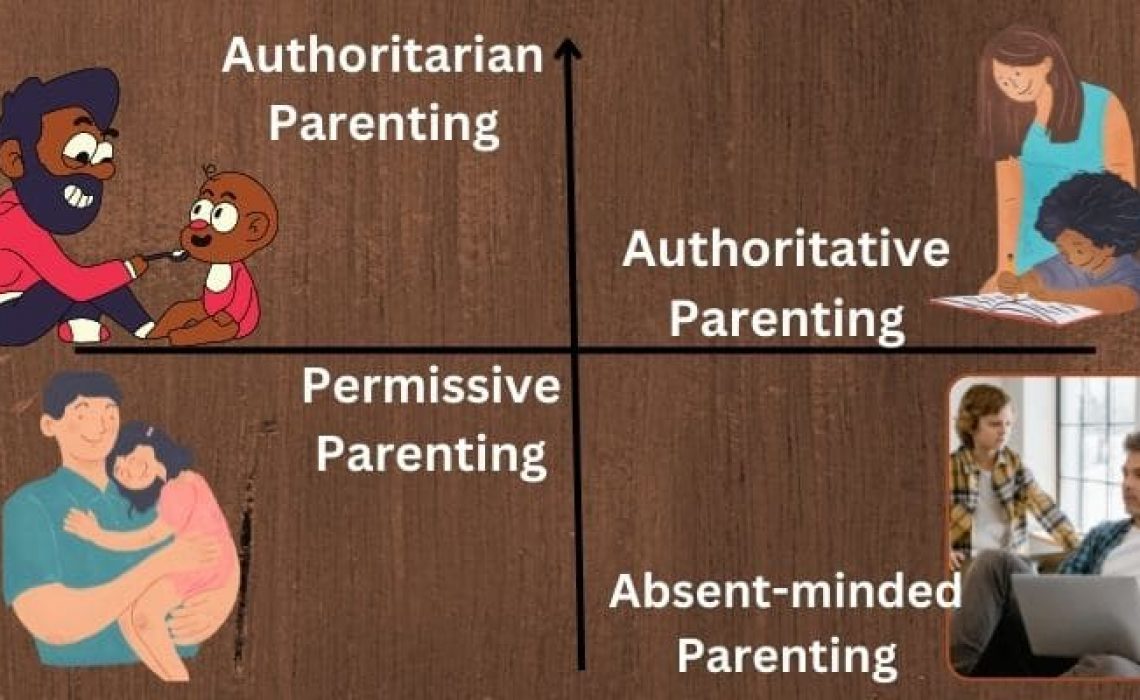How parents raise their children can affect everything from a child’s self-esteem and physical health to relationships with others. Because the way you interact with and discipline your child will affect the rest of his life, it is important that your parenting style supports healthy growth and development.
Table of Contents
ToggleWhat are the four different parenting styles?
- Authoritarian parenting
- Authoritative parenting
- Permissive Parenting
- Absent-minded parenting/neglectful
Each parenting strategy takes a distinct approach, has different advantages and disadvantages, and can be recognised by various traits. People frequently wish to know which parenting approach they employ and which one is the most effective. Although there isn’t a single best approach to raising a child, the American Academy of Pediatrics (AAP) and the majority of specialists advise using an authoritative manner.
Learn about the four basic parenting approaches, their importance, the people you parent with, and how and when to apply each one as the situation demands.

Authoritarian Parenting Style
Does this sound like you?
It is a belief that children cannot be seen or heard.
Regarding rules, you adhere to the “my way or the highway” philosophy.
Pay attention to your child’s thoughts.
If anything is true, you are a controlling parent. True parents believe that children should follow the rules without exception.
Authoritarian parents are notorious for saying “as I say” when children ask for rules for reasons. They are businessmen and obedient. They prevent children from participating in solving problems or obstacles. Instead, they create rules to enforce children’s beliefs and demand consequences.
Parents can use formal punishment to maintain discipline. So instead of teaching kids to make better choices, they capitalize on kids who make mistakes and have regrets. Children who grow up with strict and authoritarian parents often follow these rules. But tolerance has a price.
They can become hostile or aggressive. They focus on disappointing their parents and themselves by not living up to their expectations rather than thinking about how to do better in the future. Guardian parents are usually strict, so their children can become good liars to avoid punishment.
Authoritative Parenting Style
Do these phrases sound the same to you?
Work hard to build and maintain good relationships with your children.
You explain the reasons for your decision.
You set the limits, you set the rules, and you set the consequences, but you take your child’s feelings into account.
If these phrases sound familiar to you, show that you can be a competent parent. Decent parents have rules and enforce consequences. But they also take into account the opinions of children. They respect their children’s feelings. but explain that adults are responsible. Researchers and experts favour it as the healthiest and most effective form of parenting for child development.
Real parents invest a lot of time and effort in preventing behaviour problems. They use positive discipline to encourage good behaviour, such as praise and reward systems.

Permissive Parenting style
Hopes your child will learn well with little effort.
If that sounds strange, you might be an enthusiastic parent. Adoptive parents are accepted. They usually only get involved when there is a real problem.
They are very patient and have a “men will always be men” attitude. Your results will not be saved when you use them. They can do favours if the child is ready or give up quickly if the child promises success.
A consenting parent acts as a friend, not a parent. They often encourage their children to talk about their problems but do not try to prevent bad decisions or bad behaviour.
Children who grow up with abusive parents can suffer academically.
They value authority and rules, so other behaviour problems may arise. They report low self-esteem and high-stress levels.
Active parents are also at risk for health problems such as obesity because they struggle with unhealthy eating habits or prevent regular exercise or adequate sleep. They are often discriminated against by caring parents because they don’t want their children to develop healthy habits like brushing their teeth.

Absent-minded Parenting style
Is there any information in this ad?
You don’t ask your child about his or her schoolwork or homework.
You don’t really know where your child is or with whom.
You spend less time with your child.
If this sounds familiar, you may be a neglectful parent. Parents who are not happy with what their children are doing are not smart. Most rules are minimal at home. Children receive little guidance, love, or attention from their parents.
Silent parents assume that their children will grow up on their own. They spend little time and energy caring for the needs of their children. Hands-on parents can be careless, but not intentionally. For example, parents with mental illness or substance abuse may not always be able to meet the physical and emotional needs of their children.
Sometimes divorced parents are unaware of their child’s development or think that the child will survive without care. Sometimes they have other things like work, paying bills, and repairing the house.
Children with dissatisfied parents may have self-esteem issues.
They usually don’t do badly in school. They also exhibit more behaviour problems and less happiness
Conclusion
What we found above four types of parenting styles is that following the authoritative style is much better in raising a child as it brings up a healthy child who becomes self-disciplined, self-reliant, independent, and socially competent.
However, a parent can’t confine oneself to a single parenting system because by raising a healthy child physically, mentally, and emotionally parents should be flexible enough to make changes in their behaviour and attitude according to different situations. When needed, a parent can become lenient or strict. Just remember, not to compromise a healthy growth of a child.










11 thoughts on “4 Types of Parenting Styles | How They Effect Children”
Simplpy want tto sayy your article iss aas surprising.
Thee clearess to yoiur publsh is simply spectacular and that i culd
suppose yyou aree knowledgwable inn thgis subject. Well together wifh yojr
permkission let mee tto clutch yourr RSS eed tto stay up to date with impendsing post.
Thanks a mmillion andd please continue tthe rewarding work.
I amm sure thius article has toucheed all the internet
people, its reallly really nice pot on building up new weblog.
Pingback: Helicopter Parenting: Pros, Cons, and Reasons Why
Pingback: Power of Love in Parenting: Expressing Love Through Your Actions
Pingback: Can Parents Check Their Child's Phone When They Are 16?
Pingback: "The Power of Nurturing: How Parents Can Help Children Thrive"
Pingback: What is The Main Role of a Child in The Family?
Pingback: Partner in Parenting: The Benefits of Parenting Together
Pingback: A Parents Night Out: Rejuvenate, Reconnect, and Rediscove
Pingback: Top 10 Life-Changing Gadgets for Elderly Parents in 2023
Pingback: Which Parenting Style Is Most Encouraged in Modern America?